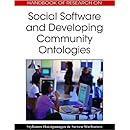Institute of Informatics, Tallinn University, ESTONIA*
The Institute of Informatics invites applications for a position of
Professor of Digital Ecosystems.
Deadline of applications: June 10, 2010.
Expected start of the work January 1st, 2011.
The employment period for the position is for 5 years and shall undergo re-elections after that. Tenure at Tallinn University can be achieved after two successful periods. The new position has been established with a significant financial contribution from European Social Fund.
The Institute of Informatics has undertaken a major development by evolving international programmes and research groups in ICT.
The significant part of ongoing research in the institute is focusing on social media ecosystems in the context of e-learning, e-governance, e-participation and network enterprise. Our international R&D team is using mainly participatory design research approach and intervention studies to envisage and develop prototypes of the next generation social media tools, with the special attention to their semantic interoperability, identity management, user experience design, activity pattern mining and semantic annotation for metadata.
The successful applicant for a professorship is expected to make a significant contribution to the development of the Interactive Media and Knowledge Environments master curriculum as well as of the Information Society Technologies PhD curriculum. (S)he is also expected to supervise PhD and master students, to be a mentor for less experienced teachers of the institute, to develop new initiatives and to start a research programme related to the field of professorship.
Applicants should possess:
1) A PhD degree in a field related to the professorship;
2) An outstanding international reputation for excellence in scholarly research;
3) Demonstrable ability to teach effectively at both graduate and undergraduate levels;
4) Excellent oral and written communication skills in English;
5) An understanding of and commitment to the role of the University to the world innovation stage, experience in cooperating with the industry is particularly welcome.












